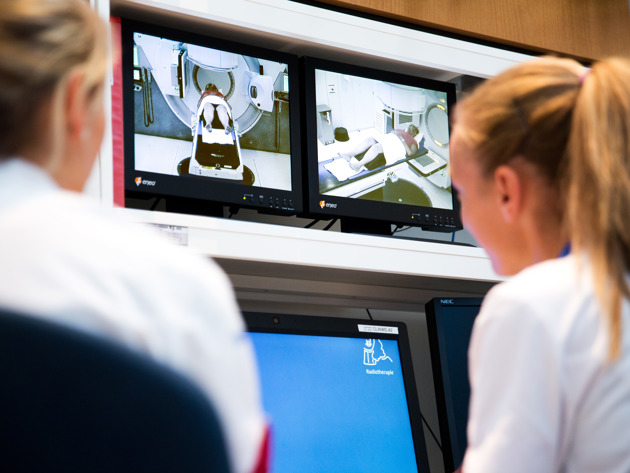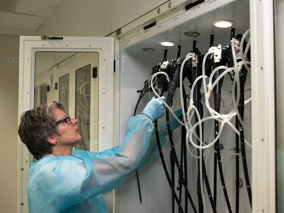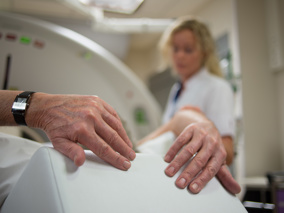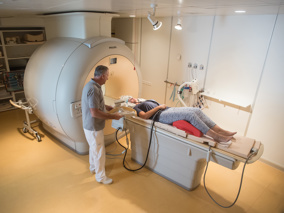Bladder cancer
Bladder cancer is a type of cancer that originates in the bladder. There are different types of bladder cancer. Treatment depends on the stage of the tumor.
If the tumor only grows in the cavity of the bladder and not in the muscle layer, it is called non-muscle-invasive bladder cancer. Non-invasive bladder cancer is the most common. This is an early stage of bladder cancer.
If the tumor does grow in the muscle layer of the bladder, we call it muscle-invasive bladder cancer.
Other types of bladder cancer include squamous cell carcinoma and adenocarcinoma.
Learn more about bladder cancer
Symptoms of Non-Muscle Invasive Bladder Cancer
Non-muscle-invasive bladder cancer does not cause pain in the bladder area. It almost never leads to urinary tract complaints. If there are signs or symptoms, it often involves:
- Blood in the urine (most common)
- Irritation during urination
- Needing to urinate more often
Symptoms of muscle-invasive bladder cancer
There are complaints that can indicate a more extensive, muscle-invasive tumor:
- Pelvic pain
- Pain in the side (flank)
- Weight loss
- Palpable swelling (mass) in the lower abdomen
Waiting
We want to inform you as well as possible about the waiting time per condition. We do this based on a prognosis of the current waiting list. The waiting time can vary from patient to patient for various reasons. Your attending physician will give you more information during your outpatient consultation.
-
10 days
First appointment
This is approximately how long it will take until you have your first appointment
-
8 days
Rapid diagnostics
This is approximately how long it will take before you can start rapid diagnostics at the NKI
-
16 days
Second opinion
This is approximately how long it will take before you come in for a second opinion at the NKI
 nl
nl





